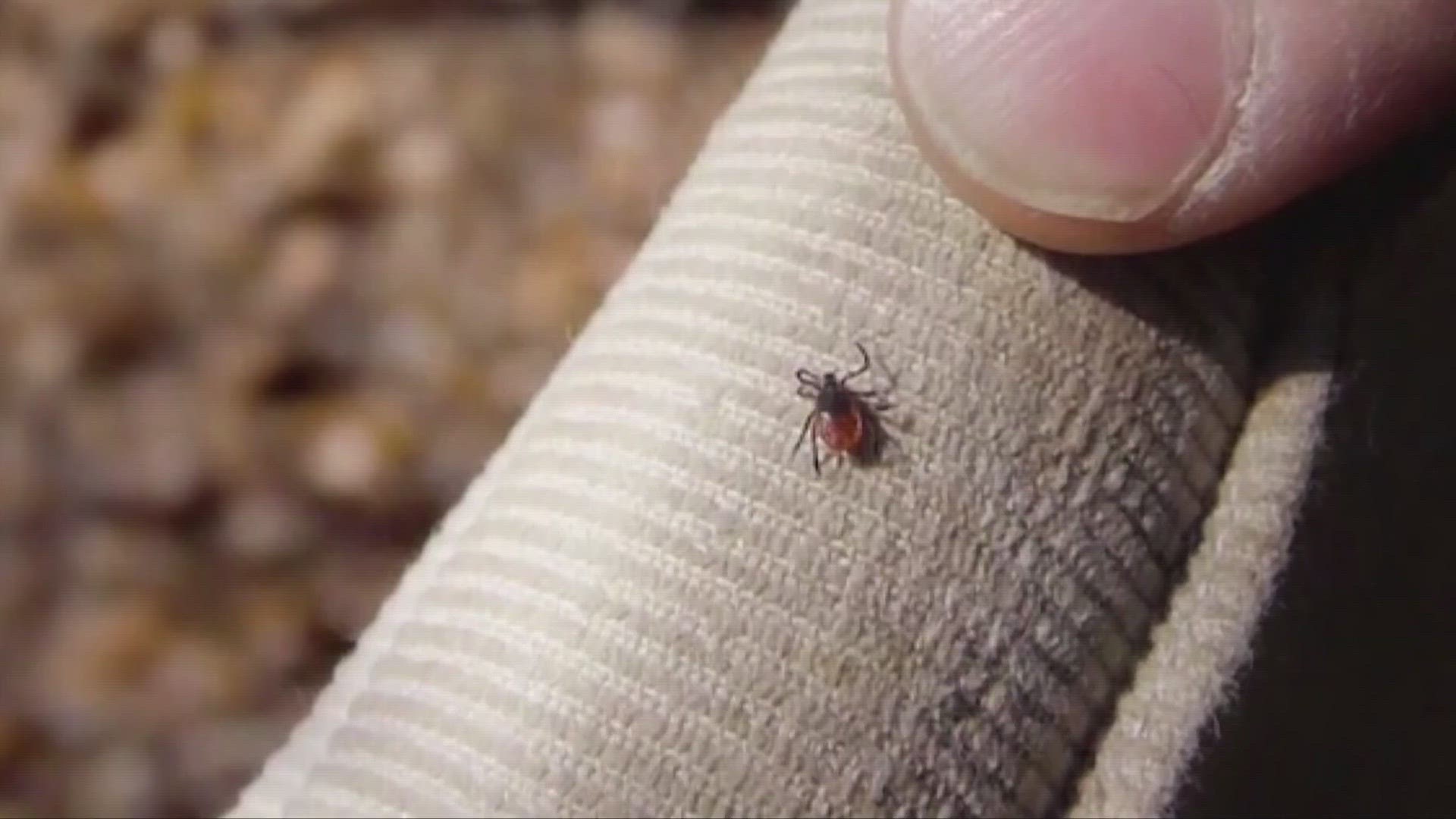TOPSHAM, Maine — Family and friends are mourning the death a 58-year-old Topsham man who died after being infected with a rare tickborne virus.
The Maine Center for Disease Control and Prevention said this was the first case of Powassan virus this year and is the third recorded Powassan death in Maine since 2015.
Weymouth's wife, Annemarie, said her husband died after developing neurological problems, including brain swelling. Now she is speaking out to warn others about protecting themselves against tickborne illness.
Annemarie said she still can't believe her beloved husband everyone knew as Bobby is gone. Weymouth would have turned 59 this coming Saturday. He died Sunday from exposure to the Powassan virus, after experiencing a number of symptoms that included paralysis.
"He was in there, but he couldn't move his body. He could point to words on a board. He pointed to 'scared,' 'afraid,' 'frustrated,'" Weymouth said.
Annemarie did not want to go on camera but spoke to NEWS CENTER Maine by phone. She said her husband, who was immunocompromised and had rheumatoid arthritis, started having a knee problem and swelling in his arm. While hospitalized at Maine Medical Center, he underwent a procedure on his knee but then lost all feeling on the right side of his body. Later, an MRI revealed severe brain swelling.
A spinal tap finally showed he was positive for the Powassan virus.
"Even if they had known from Day 1 that it was Powassan, there is no known treatment for that," Weymouth explained.
The Maine CDC said some people infected by Powassan, which is spread by deer and woodchuck ticks, don't have any symptoms. But for others, it can lead to serious neurological problems. There is no medication to treat the virus. Experts say everyone is at risk, and about one in every 10 cases are fatal. About half of the survivors experience permanent brain damage. Since 2015, Maine has identified 15 cases, including a Waldo County man who died from the virus in April of last year.
"It can be very serious and cause severe encephalitis, or inflammation of the brain," Dr. Scott Melton, who treats infectious diseases at Northern Light Infectious Disease Care, said.
Melton said providers can diagnose Powassan based on symptoms and blood or spinal fluid tests.
As for Bobby, Annemarie said her husband of 23 years loved life. He also was a dirt bike and race car enthusiast who raced at tracks all over Maine and mentored young racers. She said Bobby didn't find an embedded tick before his symptoms began, and the couple was not aware of the potentially fatal tickborne illness.
"I think if we knew that this disease was out there, we would have been more diligent. We do tick checks, but we would have used more spray and been extra careful," Annemarie said.
It's a message she said she hopes every Mainer takes seriously.
A celebration of life will be held for Bobby Weymouth from noon until 5 p.m. this Sunday at the Moat Mountain Smokehouse & Brewery Co, in North Conway, New Hampshire.
For more information about ticks and the diseases they carry, including real-time data from the Maine CDC, go here.

